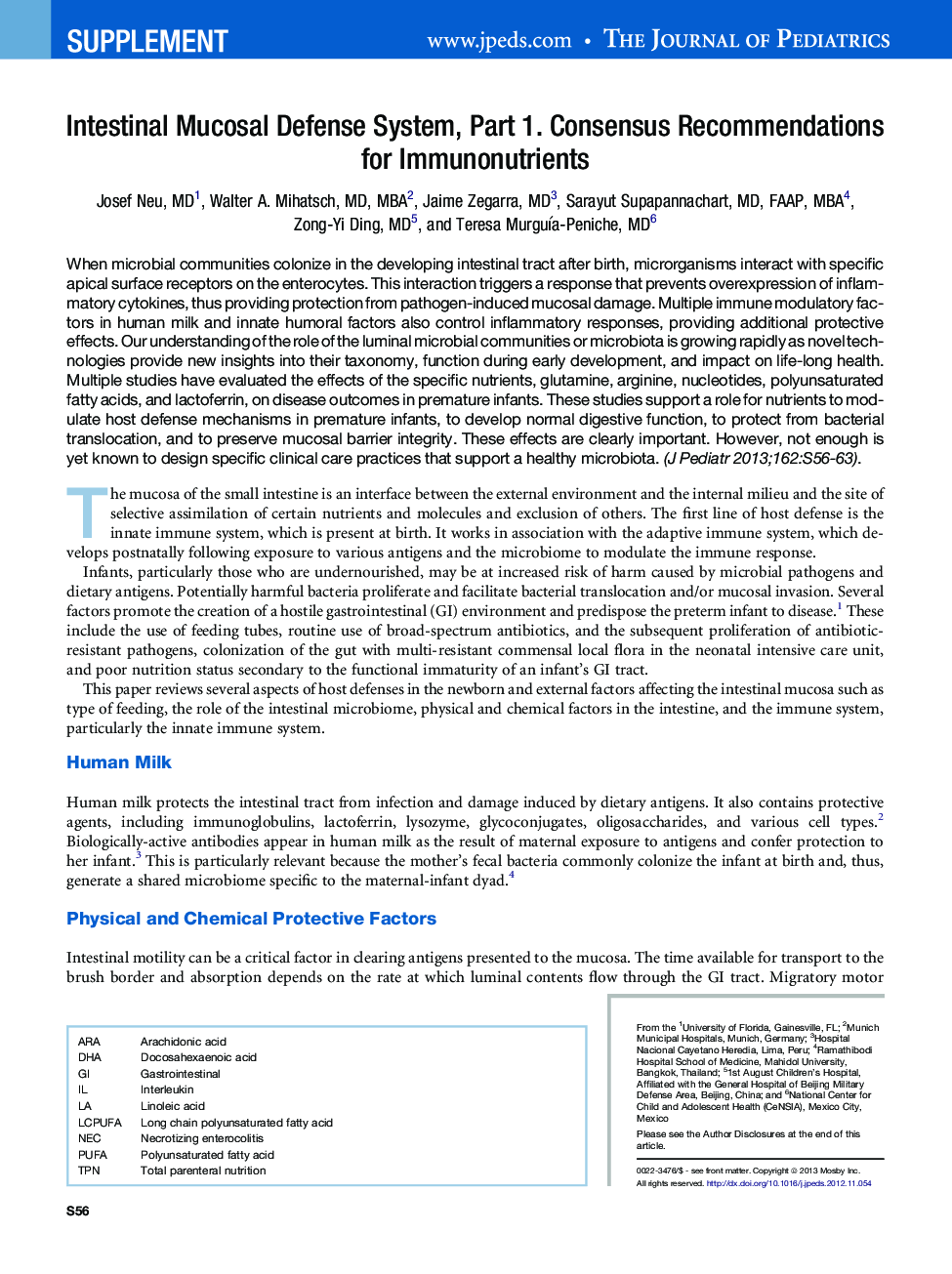| Article ID | Journal | Published Year | Pages | File Type |
|---|---|---|---|---|
| 4165457 | The Journal of Pediatrics | 2013 | 8 Pages |
When microbial communities colonize in the developing intestinal tract after birth, microrganisms interact with specific apical surface receptors on the enterocytes. This interaction triggers a response that prevents overexpression of inflammatory cytokines, thus providing protection from pathogen-induced mucosal damage. Multiple immune modulatory factors in human milk and innate humoral factors also control inflammatory responses, providing additional protective effects. Our understanding of the role of the luminal microbial communities or microbiota is growing rapidly as novel technologies provide new insights into their taxonomy, function during early development, and impact on life-long health. Multiple studies have evaluated the effects of the specific nutrients, glutamine, arginine, nucleotides, polyunsaturated fatty acids, and lactoferrin, on disease outcomes in premature infants. These studies support a role for nutrients to modulate host defense mechanisms in premature infants, to develop normal digestive function, to protect from bacterial translocation, and to preserve mucosal barrier integrity. These effects are clearly important. However, not enough is yet known to design specific clinical care practices that support a healthy microbiota.
